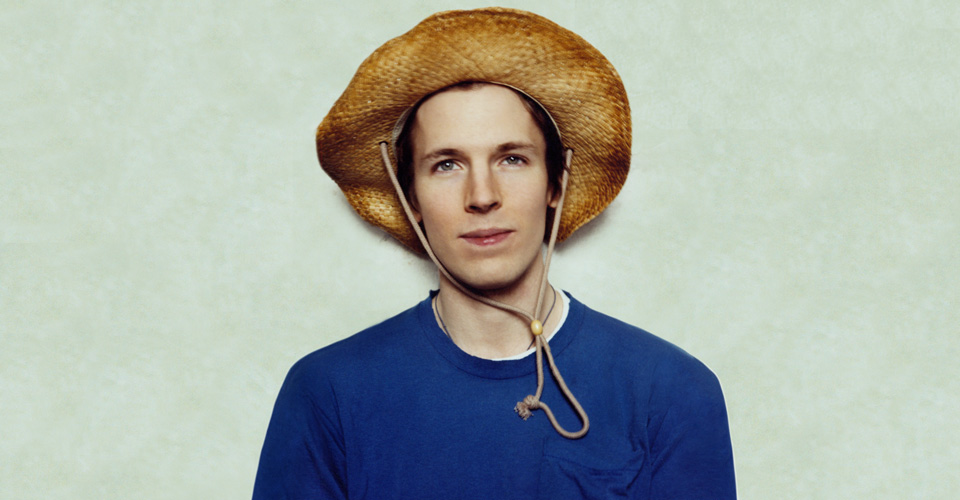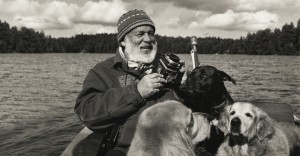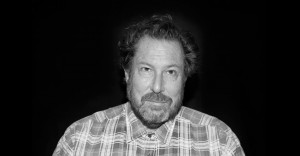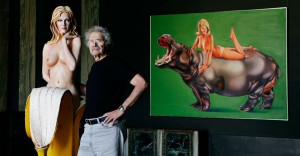Mr. McGinley, Robert Frank once said, “There is one thing that a photograph must contain: the humanity of the moment.” Do you have the same approach?
It has to feel real and feeling real sort of means feeling human, but my world is all fantasy and Robert Frank’s world is all reality. However, within my world of fantasy I am searching for moments that seem like reality. Does that make sense? Often it’s really just about the insanity of what’s going on when I am shooting and then finding that one moment that seems kind of human is a big part of the art.
Do you remember the first objects you became obsessed with taking pictures of?
When I started to shoot I took pictures of literally everything: outside airplane windows, the food that I was eating, homeless people sleeping in the park, people playing basketball, my friends – literally whatever was in my life. It was like an obsession! Then over a few years I figured out that I really liked action, nature, and nudity. Those three things are a major part of what I do. I am always searching for something that I never would expect to happen.
Speaking of your friends, Dash Snow played an especially big role in your early work. How did you two meet?
I met Dash through this graffiti-writer named Earsnot who I have known since I was fifteen years old. I grew up skateboarding with him. When I moved to New York I started dating guys and then someone said, “You know that guy, Earsnot? He’s gay, too.” We became really close friends because within a skateboarding community there were not many gay people – and especially not in graffiti. When I met Dash with him, we had this instant bond; we were like best friends from the first minute on.
You photographed Dash a lot over the years and you were often the subject of his photographs as well.
Dash was really into taking Polaroids. He was a great photographer and I guess we just clicked on that. He would carry around ten packs of Polaroids with him every day and shoot them non-stop. Mostly because his mind worked so fast that he couldn’t wait for a picture to develop normally. When we became friends it was my first three years of making photographs: it was hanging out with these guys, running around on roof tops and in subway tunnels, hanging out in bars and especially their bathrooms, doing drugs and having sex. But I guess that is what every young artist does when he moves to downtown New York.
People let you take these intimate pictures of all that madness without any worries?
Everyone was actually really into it. I think it’s also because we were so fucked up on drugs every single day that the photographs were like the evidence of what happened. I feel like there was a good three years in my life where I don’t think that I had any touches with reality or anything like that. But the photographs were great because it was this evidence of what happened. So I would develop my rolls and then get them back and be like, “Oh my god!” I was just constantly running around doing illegal activities all day long.
Why did you stop documenting things and moving to staging photo shoots?
I got so much attention from that show at the Whitney that everyone sort of knew who I was and up until that point nobody really knew me. So then when I was making photographs out and about, it didn’t seem real anymore. I felt like people were too aware and I wasn’t this anonymous person with a camera anymore. It didn’t feel right. I also sort of had shot everything that I wanted to shoot. I was getting bored of documenting things. I just felt like it was time to start making things happen.
When did you go on your first signature road trip where you would pack up a bunch of models in a van for 90 days and drive cross-country photographing them naked in scenes of nature?
In the summer of 2004 I started traveling the United States. I never traveled anywhere before that. My parents never took me anywhere when I grew up. Then in 2005 I called the designer Agnès B, because she was a big supporter of mine. She bought my photographs and would fly me to Paris and stuff and would do some group shows with me, Dash, and Dan Colen. She was really cool and I called her and said, “Listen, I don’t have any money but I really want to do this trip across America.” I wrote her this whole proposal and said what I wanted to do and how much it would cost. So she just wired me the money and it was awesome. I did my first trip in 2005.
For one of your road trips you shot a lot in caves. Sometimes it would take six hours just to climb into a cave, then you would be shooting for ten hours and climb out for another six. That sounds almost as intense as a Werner Herzog movie set.
(Laughs) True, it is a little like pulling a ship over a hill. The first week is always really hard because you’re adjusting from normal everyday life of working, being comfortable, and being in a space that is yours to just being really transient. Every day is a new day and every day is a new adventure and your body and your mind just adapt to it. So when you are working for 90 days straight, that’s your reality and that’s what you know. You kind of forget about everything else.
So you wanted to bring these people and yourself out of your normal surroundings in order to just focus on this work?
Exactly, you really have nowhere to go. That’s what you do and then you’re this group and you become a family because you are with the people so much. The nudity part doesn’t even matter. After the first ten minutes everybody has seen each other naked and it’s just part of the day, it’s totally normal. You have your two changes of clothes that you wear and just the things that you need like deodorants so that you’re not smelling around everybody else and you have granola bars, just the bare essentials of what you need. You’re sleeping at motels some nights, then other nights you’re camping, then other nights we rent houses or people lend us their summer homes and sometimes we sleep in caves. It’s always different.
That sounds quite adventurous and exciting.
It’s cool. But during it, it is really intense. I have definitely broken down and fucking cried and been like, “Damn, this is so hard!” But then someone says, “We can do it, man! We’re all going to go through it together.” Then you have really, really high moments where you just think, “Wow, it doesn’t get better than this.” And then you have really low moments like when the air conditioning breaks down, you’re in Texas and it’s like 120 degrees in the car. It’s really strange but whenever I talk to anybody that I’ve shot with on these trips they always say, “That was the best! I’ll never forget it! It was so amazing.”
How did you come across the concept of only shooting naked people?
When I first started making photographs I would shoot people nude occasionally and I was always just really into it and super fascinated by it. Just the idea of someone taking off their clothes is really exciting and also just watching the human body and studying it with a camera is just something that makes me smile and I think it’s really beautiful. All I know is that when I am shooting people nude it takes me to this other place. I am just so fascinated by the body.
Return to Top

Short Profile
Name: Ryan McGinley
DOB: 17 October 1977
Place of Birth: Ramsey, New Jersey, USA
Occupation: Photographer





















Comments
write a comment, read comments